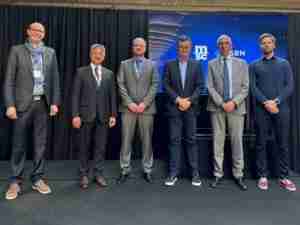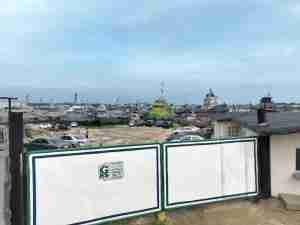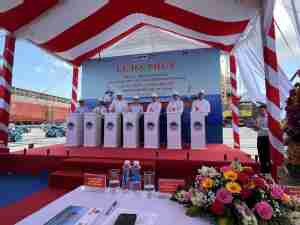White House Said Divided on How to Deal With Cheap Steel Imports
By: Joe Deaux and Andrew Mayeda | Jun 16 2017 at 04:39 PM | Maritime
The White House is divided over how hard to come down on cheap steel imports in a debate that will help set the tone for future trade policy, according to two industry representatives briefed on the discussions.
As the Commerce Department prepares to disclose its findings from an investigation into possible national-security threats posed by steel shipments, Secretary Wilbur Ross has flagged the possibility of recommending to President Donald Trump imposing new tariffs, quotas or a combination of the two.
Debate among White House officials is over the merits of just raising tariffs on imports of the metal, or opting for a hybrid model that would require buyers of foreign-made steel to pay an additional duty once a quota is reached, said the people, who asked not to be identified while a decision is still pending. Commerce canceled Friday’s briefings on the steel probe to the Senate Finance Committee and House Ways and Means Committee.
While the so-called tariff-rate quota system would give some flexibility to end users, it would mean at least some imported metal would be sold duty free. A hybrid system would ease concerns about the inflationary impact from steel tariffs, Ross said this month.
A White House official said ongoing discussions on steel measures have been lively but collaborative. A Commerce Department spokesman didn’t immediately respond to an emailed request for comment on Friday.
Trump said last week his administration would take measures “very soon” to stop foreign firms from selling steel in the U.S. at artificially low prices.
‘Aggressive Competition’
The investigation, under the seldom-used Section 232 of the Trade Expansion Act, comes after the Obama administration handed down a series of anti-dumping measures that have helped curtail cheap Chinese shipments and boosted prices and profit for domestic steelmakers.
Still, top producer Nucor Corp. on Thursday gave second-quarterly profit guidance that trailed analysts’ estimates and said its hot-rolled products were more challenged than it expected because of “aggressive competition.”
Speaking last month at a public hearing into the impact of steel imports, steel executives including Nucor’s John Ferriola and AK Steel Holding Corp.’s Roger Newport said the U.S. must build up defenses against a flood of production from China and other nations that offer state support to the industry. The U.S. must think outside the traditional remedies in combating foreign governments’ “ruthless” focus on winning control of the market, David Rintoul, who heads U.S. Steel Corp.’s tubular business, said at the time.
Buyers of metal are concerned that more protection will drive up their costs.
A similar Section 232 investigation into aluminum imports caused Molson Coors Brewing Co. last week to say that if the U.S. imposed duties on aluminum it would get passed on to them and ultimately to beer drinkers.
Last week, the U.S. Wheat Associates warned that a restriction on steel imports may lead countries to use the same national-security pretense on U.S. wheat farmers.










